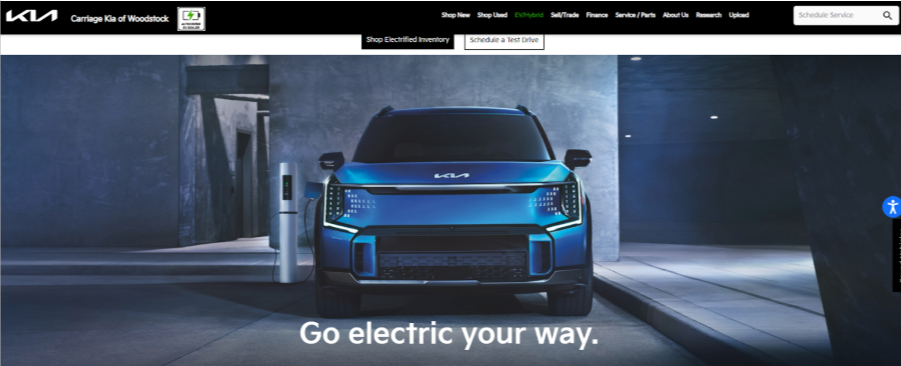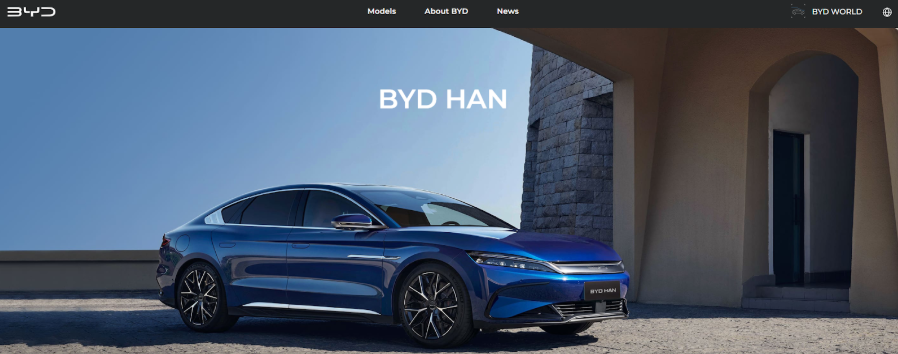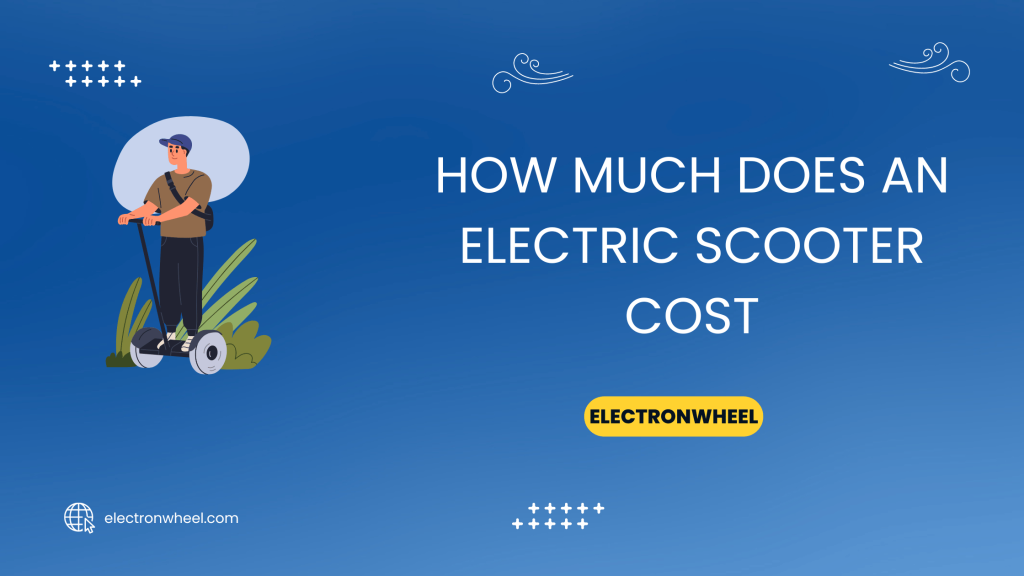This post contains affiliate links, we'll earn compensation if you make a purchase using them at no additional cost to you 😊
The cryptocurrency in vehicle purchases has transformed how buyers transact, offering secure, fast, and borderless payments.
Many top electric vehicle (EV) brands have started accepting crypto payments to cater to tech-savvy consumers. Leading brands like Tesla, Ferrari, BYD, Kia dealerships, and Rimac Automobili now allow customers to purchase select EV models with Bitcoin, Ethereum, and other cryptocurrencies.
This article explores these brands, their accepted cryptocurrencies, and how they shape modern car transactions.
Do Electric Vehicle Brands Accept Crypto Payments?
Several EV brands now accept crypto payments, making it easier for buyers to purchase their preferred electric cars using digital currency.
Tesla allows Bitcoin (BTC) and Dogecoin (DOGE) payments for models like the Model S and Model 3.
Ferrari accepts Bitcoin (BTC) and Ethereum (ETH) for luxury models such as the Purosangue.
Some Kia dealerships also support crypto transactions for vehicles like the Kia EV6. As more manufacturers integrate blockchain, crypto payments in the EV market are becoming more accessible for purchasers.
Electric Vehicle Brands That Accept Crypto Payments in 2025
EV brands have started accepting digital payments to provide seamless and secure transactions. Below is a list of major electric vehicle manufacturers currently accepting cryptocurrency payments in 2025.
| Brand | Crypto Accepted |
|---|---|
| Tesla | Bitcoin (BTC), Dogecoin (DOGE) |
| Ferrari | Bitcoin (BTC), Ethereum (ETH), USDC |
| Carriage Kia | Bitcoin (BTC) |
| BYD (Selected Markets) | Bitcoin (BTC), USDT, Ethereum (ETH) |
| Rimac Automobili | Bitcoin (BTC), Ethereum (ETH) |
Now, explore how these companies facilitate crypto payments and which models you can purchase using digital currencies.
1. Tesla
Tesla continues to accept Bitcoin (BTC) for its vehicles, including the Model S, Model 3, Model X, Model Y, and Cybertruck.

Payments must match the exact Bitcoin amount provided at checkout, as underpayments could lead to order cancellation. Refunds for canceled orders may also be issued in BTC or USD, based on Tesla’s discretion.
Tesla’s reintroduction of Bitcoin payments aligns with emerging trends in electric vehicle technology that integrate blockchain into the automotive industry. Prices for Tesla models start at $44,130 for the Model 3, and for the Model S Plaid, it is around $96,630.
2. Ferrari
Ferrari began accepting cryptocurrency payments in 2023 and continues to expand the program in 2025.

Buyers in the U.S. can purchase Ferrari models like the SF90 Stradale and Purosangue using Bitcoin (BTC), Ethereum (ETH), or USDC through trusted crypto payment processors.
The company aims to support wealthy crypto investors looking to enter the luxury EV space. Ferrari’s crypto acceptance also aligns with its sustainability goals as it continues investing in electrified supercars. According to CNBC, Ferrari EVs start at around $400,000.
As electric vehicles and cryptocurrency continue to redefine their respective industries, the intersection between the two is becoming more relevant than ever. Many forward-thinking EV brands are beginning to accept digital currencies as payment, appealing to a growing tech-savvy customer base. More on CryptoProsperity offers detailed insights into how crypto is being integrated into mainstream markets like the EV industry, and what this means for the future of payments and mobility. Staying informed can help both consumers and investors make smarter decisions in this evolving space.
3. Carriage Kia
Carriage Kia, a dealership in Georgia, accepts Bitcoin (BTC) for various Kia models, including the Kia EV6 and Kia Niro EV. Kia EV prices range from $398,350 to $60,000.

Crypto payments are processed via BitPay, enabling quick and secure transactions. This option caters to tech-savvy buyers who prefer digital assets over traditional payments.
With Kia’s expanding EV lineup, Carriage Kia provides an accessible way to purchase electric SUVs and sedans using cryptocurrency. The dealership’s crypto-friendly approach also highlights how EV sellers leverage search engine marketing to attract digital-native customers.
3. BYD (Selected Markets)
BYD, one of the world’s largest EV manufacturers, accepts Bitcoin (BTC), USDT, and Ethereum (ETH) for select models in specific markets.

The BYD Seal starts at $45,000, and the BYD Han EV is priced around $47,000. Crypto payments can be made through direct channels and third-party processors, catering to a growing audience of digital currency users.
As more brands integrate blockchain into their sales process, BYD’s crypto adoption aligns with the future of decentralized automotive transactions.
4. Rimac Automobili
Rimac Automobili, a Croatian hypercar brand, offers buyers the option to purchase its high-performance EVs using Bitcoin (BTC) and Ethereum (ETH) via BitPay.

The Rimac Nevera, priced at $2.5 million, is one of the most exclusive electric hypercars available for crypto transactions. The company’s crypto-friendly approach caters to elite buyers seeking innovative payment solutions.
As luxury EVs evolve, crypto integration enhances accessibility, and pairing it with the best EV charging apps ensures seamless long-distance travel for high-end electric vehicles.
How To Buy An EV With Crypto?
Buying an electric vehicle with cryptocurrency is now easier than ever. Follow these steps to complete your purchase securely and efficiently.
1. Choose a Crypto-Friendly EV Brand: Select a manufacturer or dealership that accepts cryptocurrency, such as Tesla, Ferrari, or Kia.
2. Select Your Preferred Model: Browse available EV models and check their pricing in fiat and crypto equivalent.
3. Check Accepted Cryptocurrencies: Verify which cryptocurrencies the seller accepts (e.g., Bitcoin, Ethereum, USDT).
4. Use a Secure Crypto Wallet: Ensure you have a reliable digital wallet with sufficient funds for the transaction.
5. Confirm the Exchange Rate: Crypto prices fluctuate; confirm the real-time exchange rate before paying.
6. Follow the Payment Instructions: The dealership or manufacturer will provide a crypto wallet address or use a third-party payment processor like BitPay.
7. Complete the Transaction: Transfer the required amount and wait for blockchain confirmation.
8. Receive Payment Confirmation: Once confirmed, the seller will issue a receipt and proceed with vehicle delivery or pickup.
Why More EV Brands Are Accepting Crypto?
EV brands are embracing cryptocurrency to attract digital-savvy buyers, enable secure transactions, and reduce processing costs. Crypto also simplifies cross-border payments, making EV purchases easier for international customers.
- Growth of blockchain technology in the automotive sector: Blockchain ensures transparency, security, and faster transactions in EV sales. It also enhances buyers’ digital ownership tracking.
- Increased demand for digital asset transactions from tech-savvy buyers: More consumers prefer crypto payments for convenience, decentralization, and financial flexibility.
- Crypto’s potential for reducing cross-border transaction fees: Cryptocurrency eliminates high banking fees, making international EV purchases more cost-effective.
- Security and fraud prevention advantages over traditional banking: Blockchain-based payments minimize fraud risks, ensuring a safer and verifiable transaction process.
Challenges & Considerations For Buying EVs With Crypto
While buying an EV with cryptocurrency offers many benefits, buyers must also consider challenges before making a purchase. Understanding these factors can help ensure a smooth transaction.
- Crypto price volatility: The value of cryptocurrencies fluctuates rapidly, affecting the final cost of an EV.
- Adoption barriers for mainstream buyers: Unlike e-bike brands’ marketing strategies, EV brands still face hurdles in educating customers about crypto payments.
- Limited dealership acceptance: Not all EV brands or dealerships support crypto payments, limiting buying options.
- Regulatory uncertainties: Government policies on crypto transactions vary, which may impact vehicle purchases.
- Tax implications: Crypto payments may trigger capital gains taxes, increasing overall purchase costs.
- Refund and dispute challenges: Crypto transactions are irreversible. This makes refunds and disputes more complicated.
Will More EV Brands Accept Crypto?
As cryptocurrency regulations become more stable, more EV brands are expected to adopt crypto payments.
According to CNBC, luxury carmakers like Ferrari have already started accepting Bitcoin and Ethereum, paving the way for broader industry adoption. Blockchain technology will enhance automotive finance by enabling faster, more secure transactions while reducing fraud risks.
As demand for digital payments grows, manufacturers may integrate crypto-friendly payment gateways, making EV purchases more accessible for global buyers who prefer decentralized transactions.
Conclusion: Various Top EV Brands Accept Crypto Payments
The adoption of cryptocurrency in the electric vehicle market is expanding. This offers buyers secure, fast, and borderless payment options.
Top brands like Tesla, Ferrari, BYD, and Carriage Kia now accept Bitcoin, Ethereum, and other digital assets. As regulations stabilize, more EV brands are likely to embrace crypto payments.
If you’re considering buying an EV with cryptocurrency, carefully research accepted payment methods and transaction policies. Stay updated on emerging trends and explore crypto-friendly EV brands for a flawless purchase experience.
FAQs
Bitcoin, Ethereum, and USDC remain the most promising cryptocurrencies due to their stability, widespread acceptance, and strong adoption in digital transactions, including EV purchases.
You can buy a BMW with Bitcoin. Several BMW dealerships accept cryptocurrency payments directly or through platforms like BitPay. Online platforms such as Crypto Emporium also facilitate purchases using Bitcoin and other cryptocurrencies.
Tesla, Ferrari, Carriage Kia, BYD (in selected markets), and Rimac Automobili accept cryptocurrency payments for specific electric vehicle models in 2025.
Choose a crypto-friendly EV brand, verify accepted currencies, use a secure digital wallet, confirm exchange rates, and complete the transaction through the provided payment gateway.
Cryptocurrency payments use blockchain technology, ensuring secure, transparent, and fraud-resistant transactions. However, buyers should verify payment addresses and transaction details before confirming their purchase.


